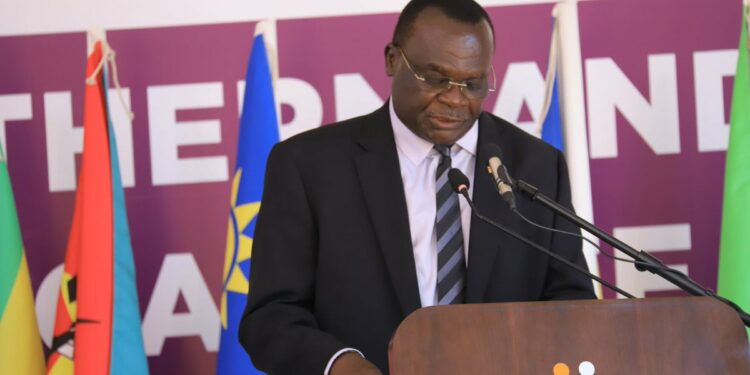Chief Justice Alfonse Owiny-Dollo has called for an urgent need for African judiciaries to adopt reforms that will significantly improve access to justice.
Speaking at the opening of the African Chief Justice Conference, themed “Enhanced Access: Underscoring Reforms in African Judiciaries” held at Speke Resort in Munyonyi on Tuesday, the Chief Justice highlighted the shared challenges African countries face in ensuring their citizens can easily access the justice system.
Justice Owiny-Dollo aptly noted, “It is incumbent on us, as heads of judiciaries and courts in our respective jurisdictions, to ensure that access to justice is zealously protected and promoted.”
The CJ Dollo emphasised that access to justice is a basic human right and a vital component of the rule of law, democracy, good governance, and socio-economic development. He cited several barriers to justice prevalent across Africa, including inadequate court infrastructure, case backlogs, poverty, corruption, gender discrimination, and a lack of judicial independence. He stressed that these factors undermine the rule of law and the protection of human rights, and called for judicial leaders across the continent to do more to address these obstacles.
“Access to justice is a core element of the rule of law and an essential prerequisite for the protection and promotion of all human rights. It has also long been recognized as a cornerstone of democracy, good governance, and an impetus to socio-economic development and poverty eradication,” the Chief Justice remarked, drawing on the significance of the United Nations’ Sustainable Development Goal No. 16, which calls for the promotion of inclusive societies and access to justice for all.
Reflecting on Uganda’s judicial reforms, Justice Owiny-Dollo noted the country’s efforts to expand courthouse coverage, increase the number of judicial officers, and integrate technology into court operations. Among the key initiatives is the application of the Electronic Court Case Management and Information System (ECCMIS), which allows court services to be available 24/7.
The Chief Justice also mentioned steps to improve court access for marginalized groups, such as constructing ramps and elevators for persons with disabilities and drafting the Cases for Persons with Disabilities Rules, 2024, to guide courts on inclusivity.
“We are vigorously embracing the use of modern technological tools of work at the Courts. To complete the circuit, we are confronting the structural impediments that negate our pursuit of access to court services,” Justice Owiny-Dollo stated.
The Chief Justice further highlighted efforts to tackle corruption, simplify court procedures, and promote alternative dispute resolution (ADR) mechanisms such as plea bargaining and small claims courts. Uganda recently concluded an ADR Week, during which 237 civil cases were resolved, including 37 by the Court of Appeal.
Africanisation of Justice Systems
In a bid to contextualize judicial practices within African realities, Justice Owiny-Dollo also underscored the importance of “Africanising” the administration of justice. This, he said, would entail adopting legal reforms that reflect the continent’s unique socio-cultural challenges while drawing on global best practices.
In this, he praised the establishment of the Africa Chief Justices’ ADR Forum, formed to promote ADR across the continent, and Uganda’s role in hosting its interim secretariat.
With training support from Pepperdine University, the Chief Justice revealed that numerous African Chief Justices are undergoing ADR training to advance the practice across their jurisdictions.
He emphasized that ADR is indispensable for achieving sustainable peace and development on the continent, a key priority for the future of African justice systems.
As African judiciaries continue to grapple with complex legal challenges, the conference serves as a timely platform for sharing best practices and laying out strategies for reform. The Chief Justice expressed hope that through continuous reforms, Africa’s legal systems would become more inclusive, effective, and accessible to all citizens, fulfilling their role as guardians of human rights and democracy.
Do you have a story in your community or an opinion to share with us: Email us at editorial@watchdoguganda.com













